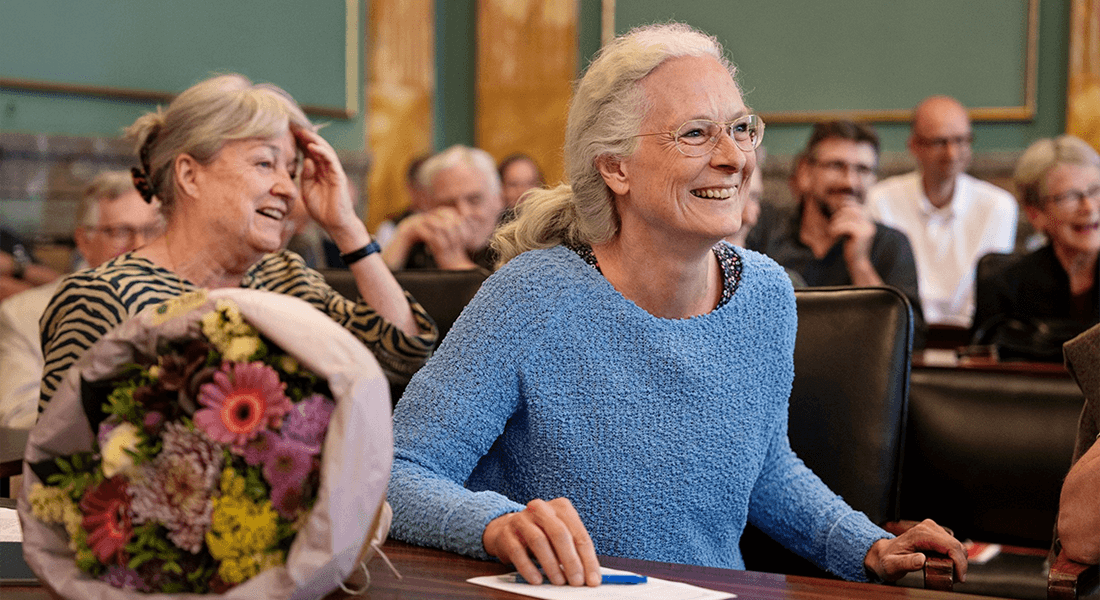Susanne Ditlevsen new president of the Royal Academy
Susanne Ditlevsen, professor of statistics at the Department of Mathematical Sciences, was elected president of the Royal Danish Academy of Sciences and Letters for the next four years on Thursday 16 May 2024.

Ditlevsen will follow in the footsteps of individuals such as King Christian VIII and Niels Bohr – and most recently Professor Marie Louise Nosch, Saxo Institute, University of Copenhagen.
“I’m extremely pleased and proud to be the head of such a unique organisation. I will approach the task with the utmost humility and respect for the Royal Academy’s historical legacy,” Ditlevesen explains.
Secretary General Professor Thomas Sinkjær looks forward to working with the new president:
“Susanne was elected with resounding support from Royal Academy members and is an excellent researcher whose abilities I have the greatest of confidence in to continue the positive direction the Royal Academy is headed.”
Ditlevsen has a versatile profile personally and professionally. She applies mathematical models to study a wide array of biological and physical systems, ranging from marine mammals to climate models to the brain’s processing of sensory input. Her research recently made waves nationally and internationally with an article in Nature Communications suggesting that a major ocean current could potentially come to a halt in the middle of this century.
Her research career started relatively late. She did not embark on a research career until after studying to be an actor and then working in various theatre companies as an actor and director for ten years.
She believes that the Royal Academy, notwithstanding its 280-year history, is highly justified today:
“More than ever the Royal Academy has an important role to play because science and interdisciplinary understanding are essential to solving society’s major challenges, such as the climate and biodiversity crises, natural disasters, security, wars, health crises, epidemics, food security and humanitarian disasters."
The Royal Danish Academy of Sciences and Letters
Founded in 1742 the Royal Academy’s objective is to strengthen the position of science in Denmark and to promote interdisciplinary understanding. Over the years the Royal Academy has had prominent national and international researchers such as Charles Darwin, Albert Einstein, Marie Skłodowska-Curie, Niels Bohr, H.C. Ørsted and August Krogh as members. Today the Royal Academy has around 500 members who reside in Denmark or live abroad.
Professor Susanne Ditlevsen
1999: MSc in mathematics, Universidad Nacional de Educación a Distancia, Spain
2000: MSc in statistics, University of Copenhagen, Denmark
2005: PhD in biostatistics, Department of Biostatics, Faculty of Health and Medical Sciences, University of Copenhagen, Denmark
2011: Professor of statistics and stochastic models in biology, Department of Mathematical Sciences, University of Copenhagen, Denmark
2016: Member of the Royal Academy
In addition:
- Section head of statistics and probability, 11 years
- Distinguished Investigator Grant in Data Science from the Novo Nordisk Foundation
- During the COVID-19 crisis she was part of the Ministry of the Interior and Health of Denmark’s early warning system advisory group
